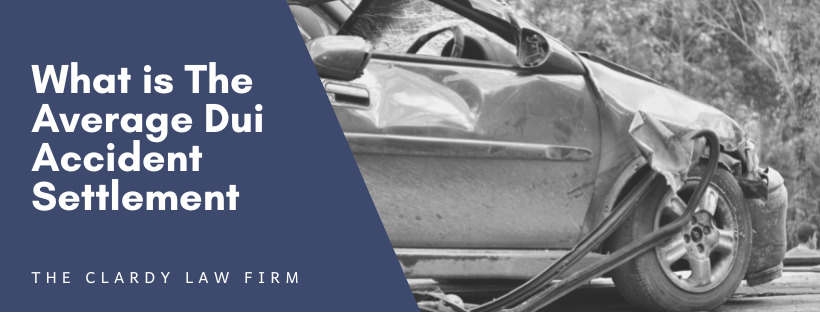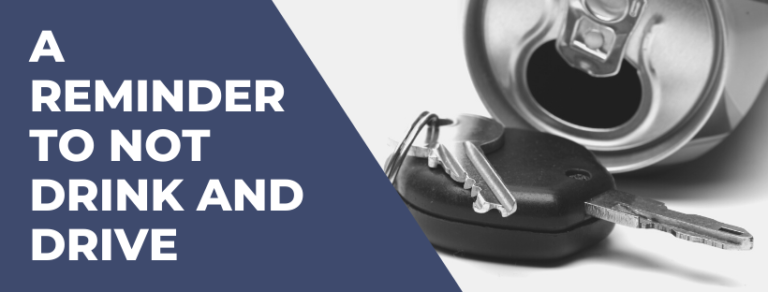If you’ve been in an accident with someone who was driving under the influence (DUI), you might wonder how much you’ll receive in a DUI settlement.
Unfortunately, there’s no “average” DUI accident settlement, as no two accidents are the same.
However, there are common factors present in every case that inform your settlement after getting hit by a drunk driver.
Our DUI accident lawyers in South Carolina take a look at what they are.
Your Injuries
Even when the facts of a DUI accident seem identical, every individual will be affected differently. Consider the following example:
A 22-year-old individual leaves a party and gets behind the wheel. They clip the rear end of a small passenger vehicle at 1 am on a Saturday morning, causing the other driver to sustain a head injury. When the police arrive at the scene, they test the drunk driver’s blood alcohol content (BAC), which returns a result of 0.09% — above the limit.
Thousands of accidents, just like this example, happen every day across the country, but that doesn’t mean every one of those victims is entitled to compensation and receives the same amount.
One victim might have a small bump and headaches for a short time after the accident, but their head injury heals without any further complication.
Another victim might sustain a traumatic brain injury that leaves them confused and struggling to communicate with their friends and loved one’s months — or even years — after the accident.
This distinction is important as it directly impacts your DUI accident settlement amount.
To understand how, we need to look at how compensation is determined in a personal injury claim.
How A Dui Accident Settlement Is Calculated
When a DUI accident victim is given compensation in a personal injury claim, they are awarded damages.
These fall into two categories:
- Economic damages
- Non-economic damages
Economic Damages
Economic damages are awarded to compensate you for the quantifiable losses you’ve experienced due to your DUI accident. These include:
Your Medical Bills
We’ve already seen how similar or identical facts can cause widely different injuries. As such, the medical bills associated with those injuries will also vary.
Anyone in a DUI accident will likely incur emergency room fees and bills for any immediate tests and treatment, but more severe injuries will naturally result in additional costs.
If a person sustains a minor injury — a bump and some bruises — their doctor may prescribe rest and ice and perhaps a follow-up appointment to ensure their body is healing.
Contrast that to someone who sustains a severe head injury. They may require surgery to stop the bleeding and repeated appointments with their doctor. If the head injury has left them with problems communicating — such as dysarthria — they may need to see a speech and language therapist to strengthen the muscles in their mouth or learn new ways of communicating with those closest to them.
Likewise, if two different people break a leg in a DUI accident, both may need their leg set in a cast to support the limb while the fracture heals, but where the first individual won’t experience any pain or discomfort once their leg has healed, the second may need surgery to correct the limb because it’s healed incorrectly. On top of this, they may need ongoing physical therapy to build strength. Their injury might even impact them for years, causing them to walk with a limp or preventing them from going back to work.
It’s no surprise that physical therapy appointments, speech and language therapy, surgery, and follow-up doctor’s appointments are far more expensive than initial treatment and a single follow-up appointment.
Such expenses can add up, and accident victims are entitled to recover every cent as part of their DUI settlement. This covers not only past medical expenses but also any further expenses they’ll incur in the future, such as if they need to take medication for the rest of their life.
When you hire a DUI lawyer to file your claim, they’ll enlist medical experts to calculate how much additional treatment you’ll need and how much it’ll cost so that you can include it in your settlement.
Your Lost Earnings
However severe your injury after a DUI accident, you may need to take time off work to recover. As part of your economic damages, you can recover your lost wages. As with your medical bills, you can recover both past and future lost wages, such as if you’re unable to work again or need to change jobs because you can longer fulfill your responsibilities.
Calculating your lost wages is pretty straightforward. If you receive an hourly wage, multiply your rate by the number of hours you’re out of work. If you have an annual salary, divide it by 365 to calculate how much you earn a day and multiply it by however many days you cannot work.
Property Damage
If your car is damaged following your DUI accident, you can recover the costs of repairing it. If your vehicle is totaled, you can claim the value of your car before it was damaged.
Non-economic Damages
The second type of damages you’re entitled to as part of your DUI accident settlement is called non-economic damages. These are slightly more difficult to calculate, as they are designed to compensate you for the impact of your injuries on your life.
Common non-economic damages include pain and suffering, loss of enjoyment, and mental anguish. Unlike economic damages like lost wages, which you can determine by referring to your paycheck, non-economic damages don’t have a definitive financial value.
If we go back to our example of the accident victim who sustains a severe head injury that affects their ability to communicate, how do you put a price on that? Even in a less serious case where a victim has ongoing headaches, who’s to say how much headaches “cost” in monetary terms?
Therefore, to determine non-economic damages, insurance companies will use one of two methods:
- Per diem
- Multiplier
“Per diem” is Latin for “for each day.” This method involves assigning each day a monetary value and multiplying it by however many days your injury impacts your life.
For example, if an accident leaves you with permanent damage that causes daily pain, you could receive compensation “for every day” for the rest of your life. However, this method is less common, and insurers typically use the multiplier method to calculate non-economic damages.
The multiplier method works by taking the sum of your economic damages (your medical bills, lost wages, and property damage) and multiplying it by a number between one and five.
Every insurance company uses different formulas to determine what this multiplier will be, but as a general rule, injuries that have a more significant impact on your life are assigned a higher number, resulting in a higher DUI settlement.
To give you an example, if you need to use a wheelchair every day for the rest of your life after your accident, your economic damages may be multiplied by four or five. By comparison, if you sustain minor injuries that cause pain for a couple of months but then heal without further complications, your economic damages may be multiplied by two.
Punitive Damages
There is a third type of damages you might receive in your DUI accident settlement. These are called punitive damages, but they’re only available if you do not reach an agreement during settlement negotiations and decide to take your case to trial.
If the jury finds the defendant liable for your injuries, they’ll decide how much compensatory (economic and non-economic) damages you’ll receive and whether punitive damages should apply.
Punitive damages often serve two purposes: to punish the defendant for their conduct and to deter others from engaging in similar behavior. As such, punitive damages are common in DUI accident cases, as driving while intoxicated is wildly outrageous and dangerous behavior.
Your Evidence
To successfully negotiate a fair settlement after getting hit by a drunk driver, you need evidence proving they were responsible.
When you’re in a car accident, the first thing you should do is call the police. When the police arrive at the scene, they’ll conduct a breath test to determine if any drivers are intoxicated. Drivers can legally refuse a breath test, which will result in a license suspension. If the driver responsible refuses a test, this doesn’t mean you won’t be able to recover compensation.
A DUI accident lawyer can request a copy of your traffic collision report. This report is filled in by a responding officer and outlines any factors contributing to the crash. If the police officer suspects the driver involved was under the influence, they will note it on the report, which can support your claim. Your attorney can also review footage from the bar or establishment the defendant drank at before getting behind the wheel.
You may also be able to claim compensation from the bar or restaurant if they knowingly sold alcohol to an intoxicated person.
Aside from proving that the individual who caused your crash was under the influence, you also need to prove the extent of your injuries and any other damage that resulted from the collision. This makes it vital to see a doctor after your accident. If you don’t have medical records indicating your injuries, the insurance company may dispute that you sustained them in the accident, which can result in a reduced DUI settlement.
It’s also crucial to hold on to receipts or quotes from the auto shop so you can recover the cost of repairing your vehicle.
While there may not be an average DUI settlement amount, you may be entitled to significant compensation after getting hit by a drunk driver. Our DUI accident lawyers in Greenville, South Carolina, know that every case is unique and will fight to get you the maximum compensation possible.





